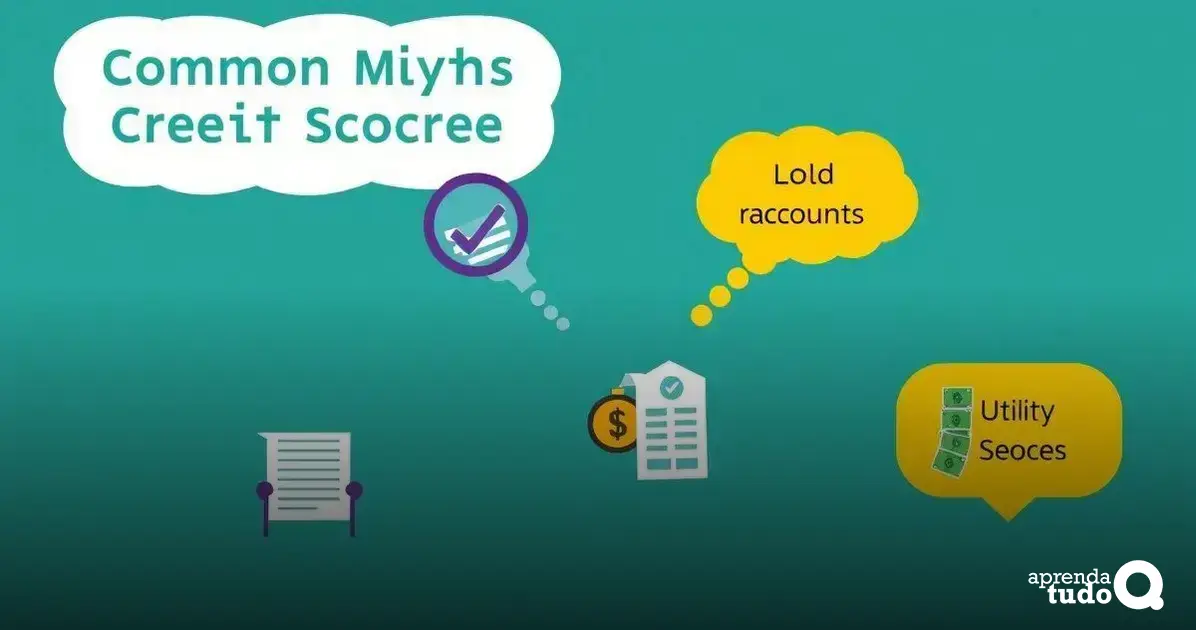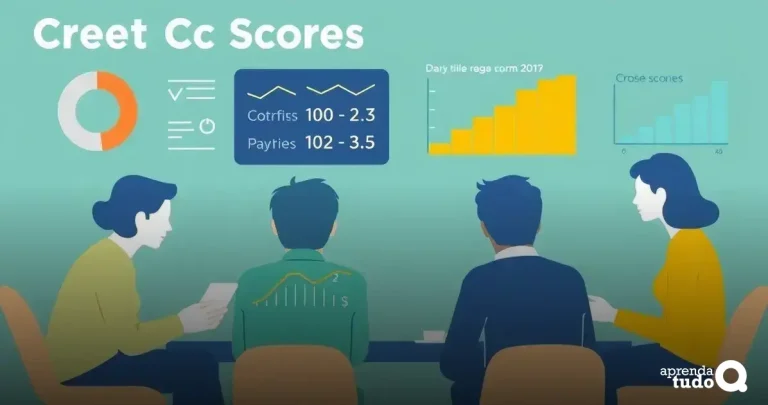It appears that there is no specific subtitle provided. However, let’s highlight the importance of knowing your credit score.
Understanding your credit score helps you make informed financial decisions.
For example, if you know your score is low, you can take steps to improve it before applying for loans or credit cards.
Continuous awareness of your credit score can guide your actions towards achieving better financial health.
Another critical factor is the habit of routine monitoring. Regularly checking your credit score can alert you to any changes or potential fraud.
If you see a sudden drop in your score, you can quickly investigate the reason. This vigilance can protect you from long-term financial damage.
Lastly, educating yourself about what factors influence your credit score, such as payment history and credit utilization, will empower you to navigate your financial journey more effectively.
Knowledge is key, and understanding credit scores is a valuable part of that.
Are you struggling with your finances? Improve your credit score to unlock better opportunities and financial freedom.
Understanding Credit Scores
Understanding credit scores is crucial for anyone looking to improve their financial situation. A credit score is a number that represents your creditworthiness.
It reflects how reliable you are at paying back borrowed money. Lenders use this score to decide whether to give you loans or credit cards.
Credit scores typically range from 300 to 850. A higher score shows that you manage your debts responsibly, while a lower score may limit your financial options.
Factors like payment history, credit utilization, and the length of your credit history all contribute to your overall score.
Knowing your credit score can help you make informed decisions. If you find areas to improve, you can take steps to boost your score.
This understanding is the first step to unlocking financial freedom and gaining access to better loan rates and opportunities.
Factors Affecting Your Credit Score
Several key factors affect your credit score, and understanding them can help you improve it. One of the biggest influences is your payment history.
If you pay your bills on time, your score will increase. However, late payments can hurt your score significantly, so staying on top of due dates is important.
Another factor is your credit utilization ratio. This ratio measures how much credit you are using compared to your total available credit.
Ideally, you should keep this ratio below 30%. High credit usage can signal to lenders that you might be overextending yourself financially.
The length of your credit history also plays a role in your score. Lenders prefer to see a longer history of responsible credit use.
Opening new accounts can lower the average age of your credit, which could negatively impact your score.
Knowing these factors can empower you to take steps that may lead to a better credit score.
Effective Strategies to Improve Your Credit Score
Improving your credit score doesn’t have to be overwhelming. One effective strategy is to always pay your bills on time.
Setting up automatic payments or reminders can help ensure you never miss a due date.
Making timely payments will boost your score and show lenders that you are responsible with credit.
Another strategy is to reduce your credit utilization ratio. Aim to keep your credit usage below 30% of your total credit limit.
You can do this by paying down existing credit card balances or asking for a credit limit increase.
This will help improve your score by showing lenders that you are not overextending financially.
Regularly checking your credit report is also important. Look for errors or inaccuracies and dispute any discrepancies you find.
This can help improve your score quickly. Additionally, keeping old credit accounts open can help lengthen your credit history, which positively impacts your score.
Common Myths About Credit Scores

There are many common myths about credit scores that can mislead people. One popular myth is that checking your own credit score will hurt it.
This is actually false. When you check your own score, it is known as a “soft inquiry.”
Soft inquiries do not affect your credit score in any way. It’s a good practice to monitor your score regularly.
Another myth is that closing old credit accounts will improve your score. In reality, closing accounts can reduce your overall credit history, which may lower your score.
It’s usually better to keep old accounts open, as long as they are in good standing. This shows lenders that you have a long history of managing credit responsibly.
Many people also believe that only loans and credit cards affect their credit scores.
However, other factors, like unpaid utility bills or collection accounts, can also play a role.
It’s essential to understand the full picture of what can impact your credit score to work effectively on improving it.
Monitoring Your Credit Score Progress
Monitoring your credit score progress is a vital part of improving your financial health.
By regularly checking your score, you can see how your efforts to enhance it are paying off.
It helps you understand what strategies are working and where you may need to focus more attention.
There are many tools available today to help you track your credit score.
Many banks and financial services offer free credit score monitoring as part of their services.
Using these tools can notify you of any changes, and you can get alerts for any significant updates like new accounts or missed payments.
Additionally, it’s crucial to review your credit report at least once a year. This allows you to check for errors or signs of identity theft.
By staying on top of your credit score and addressing any issues promptly, you can ensure you are on the right track toward achieving your financial goals.
It seems there was an error, as there is no specific subtitle provided for the content. However, I can help illustrate an important topic relevant to credit scores.
One effective method is understanding how debts impact your credit score.
When you manage your debts wisely, you demonstrate your ability to handle credit, which can lead to a higher score.
Paying down existing debt is a smart strategy. Focus on prioritising high-interest debts first, as this can save you money while also improving your score.
Even small payments can make a difference when made regularly.
Additionally, consider talking to a financial advisor. They can offer tailored advice on managing debt and maintaining a healthy credit score.
Staying informed about your credit will empower you to make the best financial decisions.






